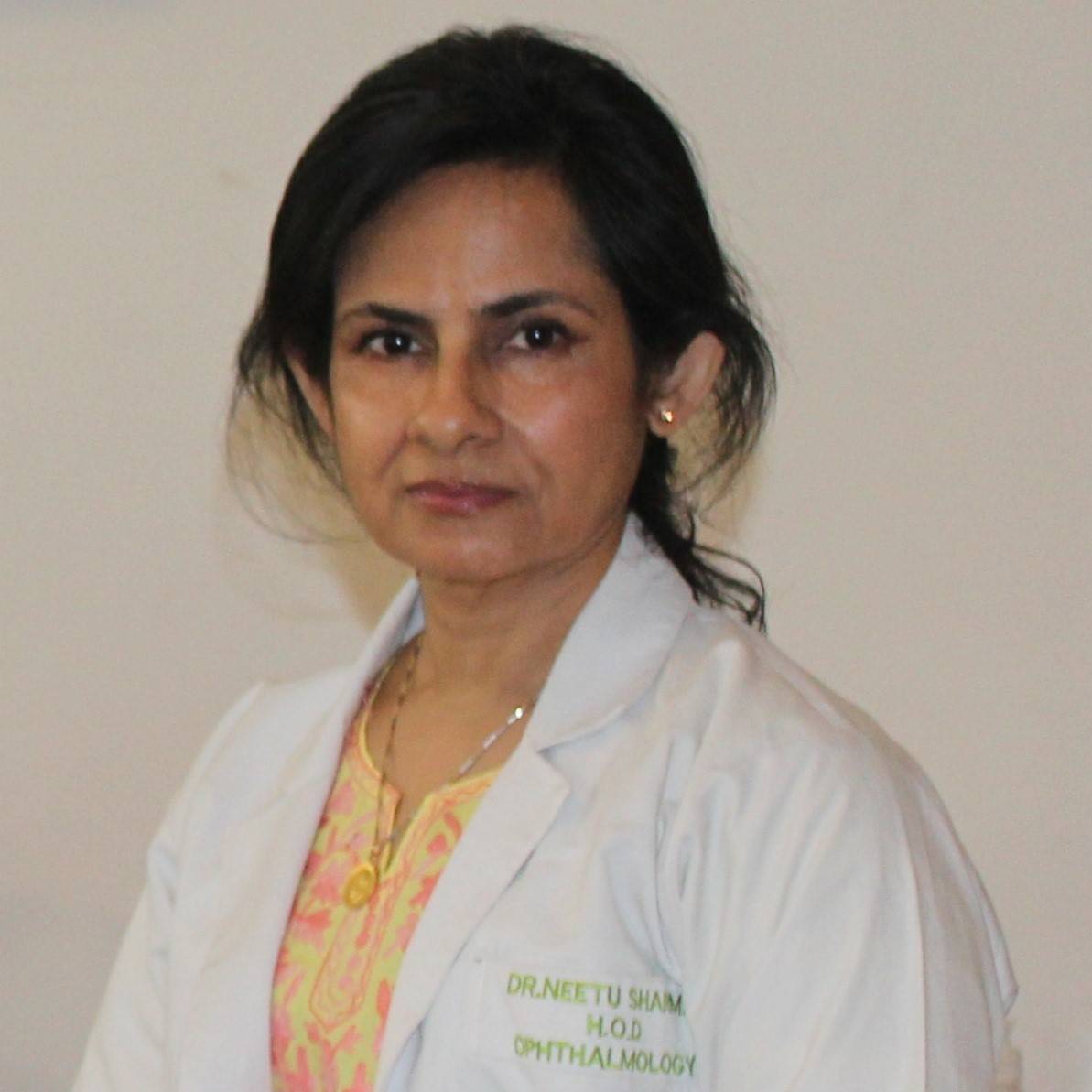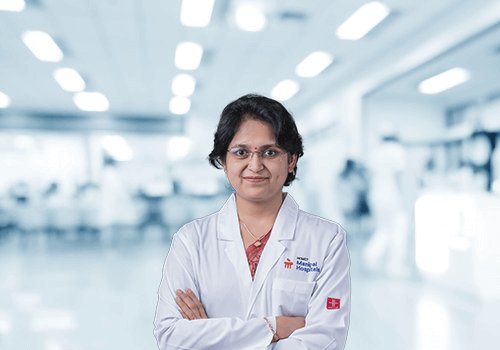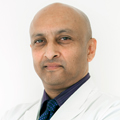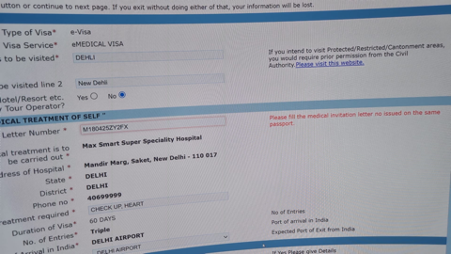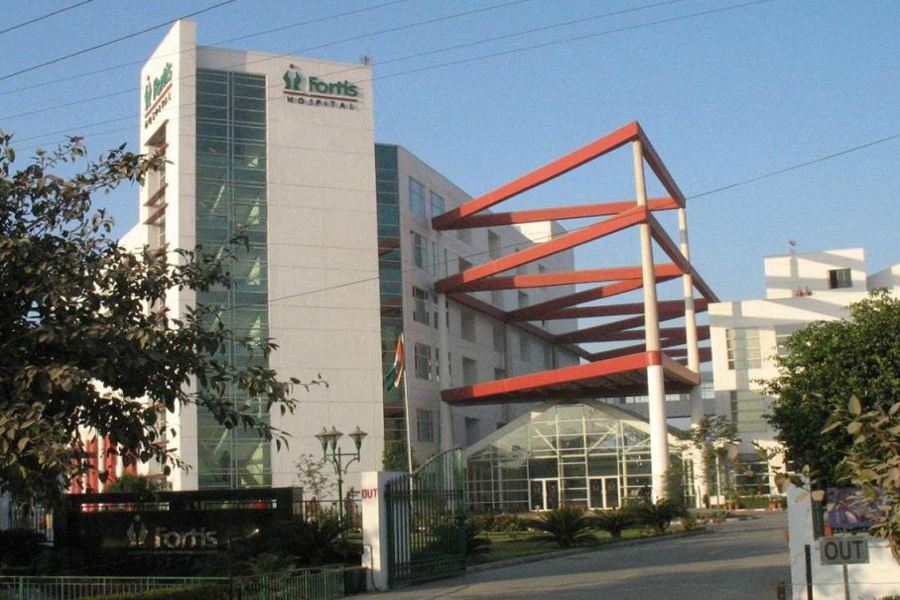About the Doctor
Dr. Neetu Sharma has an extensive surgical, clinical and teaching experience of over 25 years, having worked at two well-equipped eye hospitals as Head of Cataract Surgery Services, before joining Fortis Hospital Noida in 2004. She heads the department of Ophthalmology at Fortis, Noida and is an alumnus of the prestigious Medical College JIPMER, Pondicherry, having achieved an All India Rank of No. 1 in their entrance exam. She did her fellowship in advanced techniques of cataract surgery with lens implant at L.V. Prasad Eye Institute, Hyderabad. She has performed tens of thousands of ocular surgeries with excellent visual outcomes. Her core specialization is in Micro-incision cataract surgery with Lens implant, Glaucoma, Lasik & Pediatric Ophthalmology. She is often referred with complicated and demanding surgical cases from medical fraternity colleagues and often those of their relatives and friends, due to a flawless surgical reputation built up over two and a half decades. Dr. Neetu has personally trained over 200 practicing eye surgeons from India, UK, USA and Middle East in the latest techniques of cataract surgeries and implant.
Specialization
Frequently Asked Questions About Opthalmology
How often should I have an eye exam?
If you are an adult without risk factors for eye disease, it is recommended that you have an eye examination:
• At least once between the ages 20 and 39
• Every two years between 40 and 50
• Every year if you are above 50 or older.
• If you have a family history of glaucoma or history of diabetes, you should be examined every year after 40
• People with diabetes should get an eye examination done at least once a year
I have Refractive Error, what should I opt for Spectacles, contact lens or Lasik?
The option of any of above depends on the age, Refractive Error, Eye Condition and Personal Choice.
• Age- Contact Lens and Lasik is not an option for children. They should wear spectacles. Teenagers can use Contact Lens while the minimum age limit for Lasik is 18 years.
• Contact lens is a safe option if a person does not want to wear glasses.
• If Contact Lens do not suit you or find it cumbersome to handle them, Lasik is a good option. It gives you a permanent solution to get rid of your Glasses or Contact Lens. Only the reading or near number may come up later in life after 40 to 45 years of age. There are certain parameters in eye which need to be examined upon prior to opting for Lasik eg- Corneal Thickness, tear film, retina etc. The Ophthalmologist will examine your Eyes in detail and guide you accordingly.
What are the complications associated with contact lenses wear?
Excessive wear of Contact Lenses, particularly overnight wear, and poor hygiene is associated with most of the safety concerns. Never ignore any redness, itching, watering if you are wearing Contact Lens and seek advice from the ophthalmologist.
Few complications of Contact Lens are Giant papillary conjunctivitis-allergic, Superior limbic keratoconjunctivitis-dry Eye, Corneal abrasion, Corneal ulcer – keratitis etc. These are not common and can be easily avoided with proper handling and care of your Lenses.
How does Diabetes affect the eye?
Diabetes can cause damage to every part of the eye, but most significantly to the retina, which is the light sensitive portion of the eye. Regular examination of retina is key to the early diagnosis and management of this condition called Diabetic Retinopathy, which is potentially blinding. Special tests like Angiography and OCT help assess severity of the disease and how it is treated using lasers and special injections. Surgery may be required in advanced cases
Can Glaucoma lead to blindness?
Glaucoma is a potentially blinding disease. Unfortunately, most of the time, the symptoms aren’t apparent until it’s too late, unless people at high risk have regular eye examinations. Risk factors include family history of disease, Diabetes, High Myopia, Thyroid disease, use of steroids, injury, bleeding and vascular diseases of eye. People older than 40 are at greater risk and should undergo a yearly eye examination.
Is LASIK safer and more accurate?
A proper pre-operative examination and tests are essential to rule out any pre-existing risk factors and prepare for LASIK. The newer SBK LASIK, which uses ultrathin 90 micron flaps and advanced laser machines, is extremely safe and accurate. A minimum residual bed thickness of 300 microns ensures long-term safety and the use of large optical zones (6 mm or more) improves quality of vision, especially at night.
